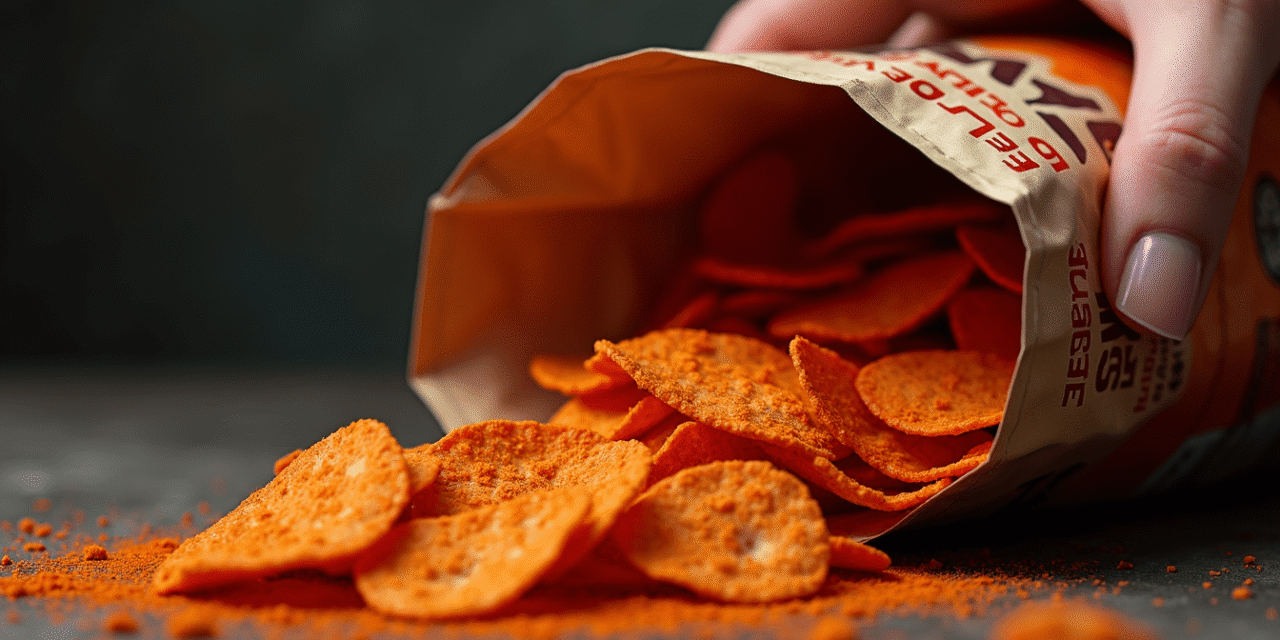As a Muslim consumer, it is crucial to ensure that the food we consume aligns with our religious dietary requirements. In this comprehensive guide, I will delve into the halal status of Takis, a popular snack, providing you with the necessary information to make informed choices and satisfy your cravings without compromising your faith.
Ingredients, Manufacturing and Halal Certification
Takis are a popular spicy corn chip snack made by Barcel USA. Takis come in various flavors such as Fuego, Zombie, and Xplosion. They have gained a cult following among spicy food aficionados and youth culture. However, there has been an ongoing debate about whether Takis are halal or haram (impermissible) according to Islamic dietary laws.
This article will examine the key considerations around Takis’ halal status:
- Background on halal standards
- Analysis of Takis ingredients
- Manufacturing process
- Presence or lack of halal certification
The sources referenced include:
- Official website of Takis
- Fatwas from Islamic scholarly sites:
By examining multiple perspectives from official, scholarly, and consumer sources, this article aims to provide evidence-based analysis on the pressing question: Are Takis halal?
Background on Halal Food Standards
Halal refers to what is permitted or lawful under Islamic law. When it comes to food, for a product to be certified halal, it must meet certain dietary regulations:
- Cannot contain any ingredients that are haram (unlawful)
- Pork, pork by-products
- Alcohol and intoxicants
- Animals that were not slaughtered according to zabihah (Islamic slaughter)
- Carnivorous animals, reptiles, amphibians
- Blood and blood by-products
- No contamination during preparation and processing
- Utensils, equipment, and surfaces must be cleaned between halal and haram food production
For food to be halal certified it must not contain any pork or alcohol products. Also, it is important for the food to be prepared in a completely halal environment. For example, halal meat processed in a factory that also processes pork products would not be considered halal.
Additionally, the final product should have halal certification from an accredited halal agency. This certification verifies that all ingredients and production meet Islamic dietary laws. Major certification bodies include:
- Islamic Food and Nutrition Council of America (IFANCA)
- Islamic Services of America (ISA)
- Halal Transactions of Omaha
Without proper halal certification from a recognized halal agency, Muslim consumers cannot be certain if a product like Takis is completely halal.
Are Takis Chips Halal Or Haram?
There are conflicting views on whether Takis corn chips meet the criteria for halal:
Evidence They May Be Halal
- According to the Takis website, Takis do not contain:
- Pork-derived ingredients
- Alcohol
- Pork enzymes
Takis ingredients appear to be halal. The flavors are most likely synthetic versions that conform to Islamic law.
Key Points
- Ingredients: Contradictory evidence on flavorings and enzymes
- Manufacturing: Risk of cross-contamination
- Certification: No third-party halal certification
The varied evidence from different sources demonstrates the ongoing ambiguity surrounding Takis’ halal compliance.
Is Takis Halal – FAQs
Takis are a brand of rolled tortilla chips that are not considered halal. They contain ingredients that are not permissible according to Islamic dietary laws.
Do Takis contain any pork products?
No, Takis do not contain any pork products. However, they do contain other ingredients that are considered haram (forbidden) in Islamic dietary laws.
What ingredients are used in Takis?
Takis chips are made with a variety of ingredients, which may include corn masa flour, vegetable oil, seasoning, salt, sugar, monosodium glutamate (MSG), citric acid, artificial colors, and natural and artificial flavors.
Are the ingredients used in Takis considered halal?
No, the ingredients used in Takis are not considered halal. They may include haram ingredients such as artificial colors, flavors, and additives.
Are Takis Fuego chips halal?
No, Takis Fuego chips are not halal. They contain ingredients that are haram according to Islamic dietary laws.
Are there any halal alternatives to Takis?
Yes, there are halal alternatives available in the market. It is recommended to look for chips that have a halal certification or check the ingredients list to ensure they are permissible according to Islamic dietary laws.
Does Takis have a halal certification?
No, Takis do not have a halal certification. They are not certified as halal by any recognized Islamic authority.
Do Takis contain any animal products?
Takis do not contain any specific animal products like pork or beef. However, some of the ingredients used in Takis may be derived from animal sources, making them unsuitable for halal consumption.
Do Takis contain alcohol?
No, Takis do not contain alcohol. However, they may contain artificial flavors or extracts that can sometimes be derived from alcohol. This makes them unsuitable for halal consumption.
Are Takis halal or haram?
Takis are considered haram (forbidden) according to Islamic dietary laws due to the presence of haram ingredients in their composition.
Conclusion
In summary, there are conflicting views on whether Takis can be considered halal:
-
According to Takis’ manufacturer, the chips do not contain any overtly haram ingredients like pork or alcohol.
-
However, some Muslim scholars and halal consumer advocates point out potential issues:
- Use of questionable artificial flavors and enzymes
- Risk of cross-contamination with haram ingredients during manufacturing
- Lack of certification from a recognized halal agency
As The Islamic Information concludes:
The halal status of Takis remains unclear. We advise Muslim consumers to exercise caution and avoid such doubtful products until the manufacturers can provide more transparency.
The debate surrounding Takis highlights the importance of halal certification to resolve uncertainty for Muslim consumers. Proper certification requires transparency from food companies regarding their ingredients and production processes.
In the case of Takis, further disclosure and halal certification from an accredited agency would be needed to confirm if these popular snacks are truly halal. Until then, their status remains ambiguous based on currently available information.





